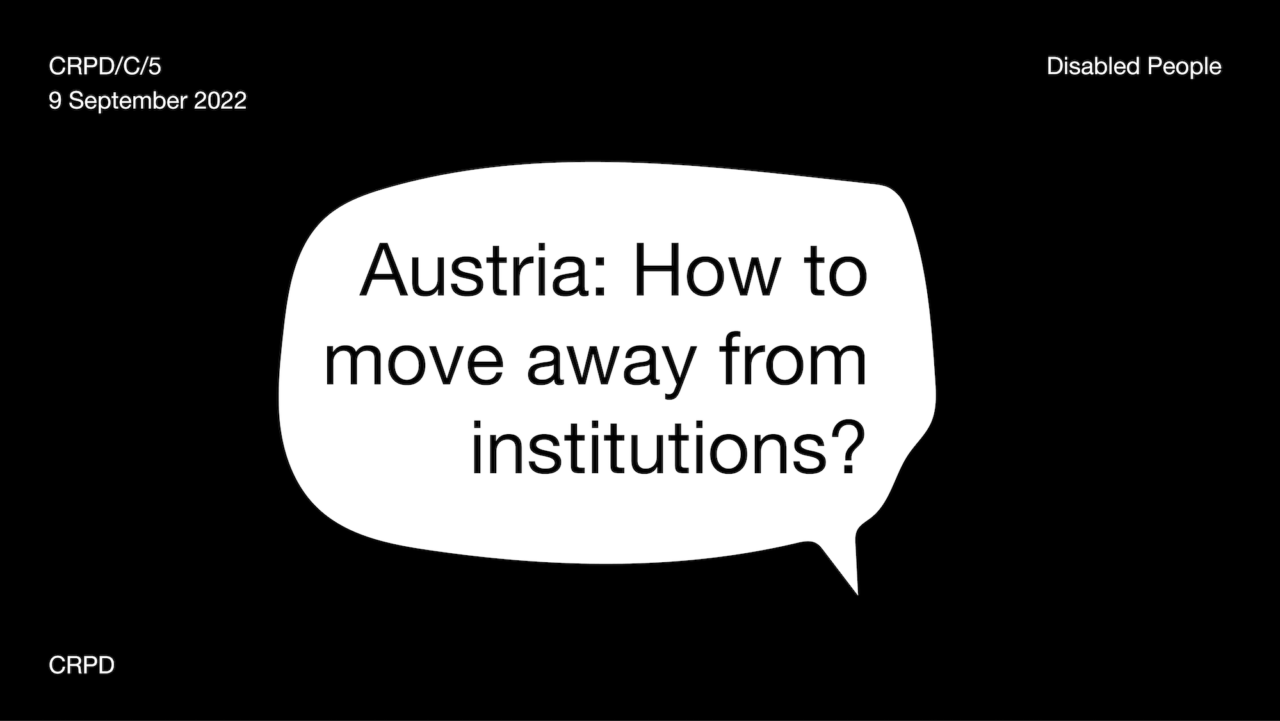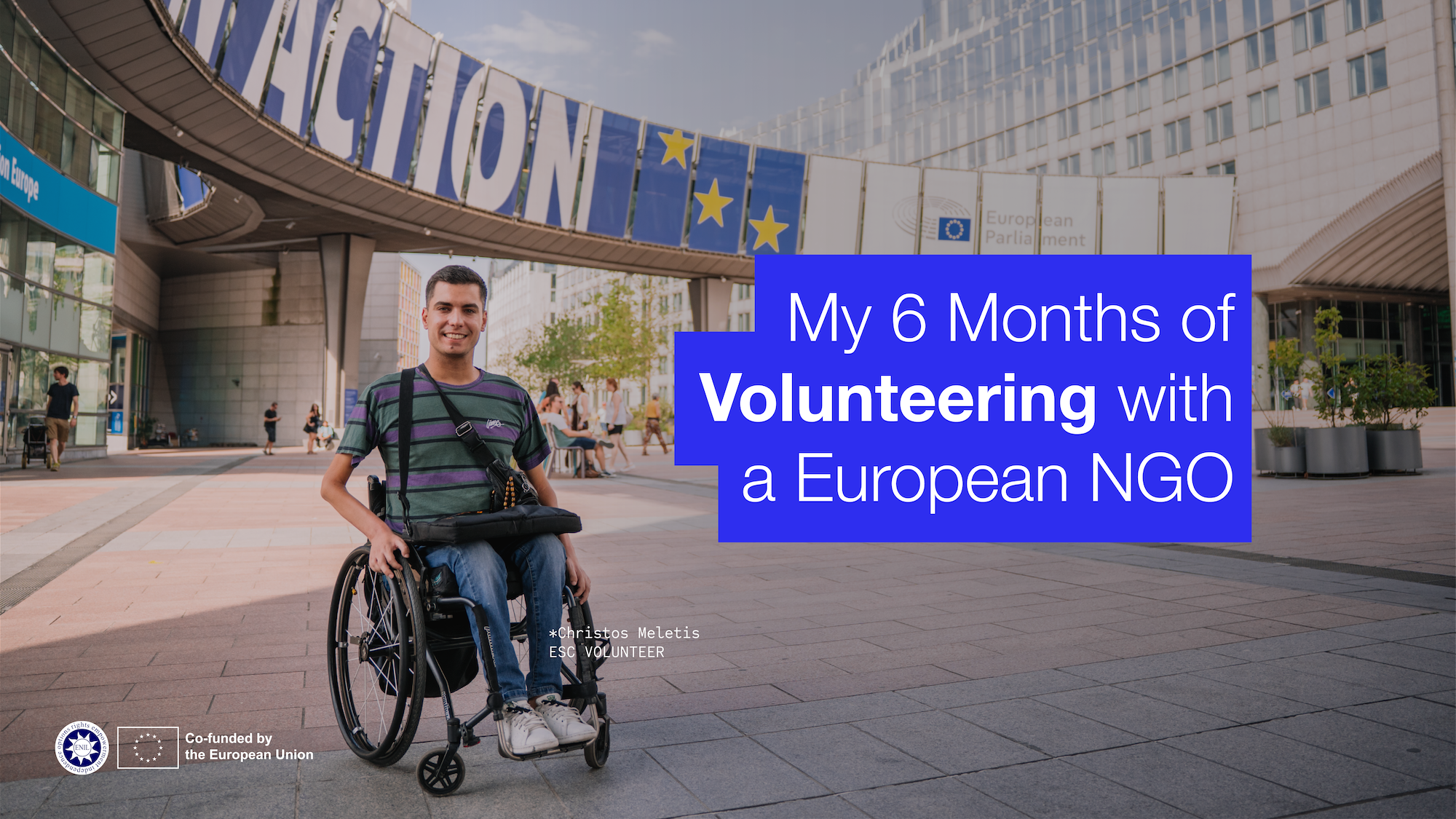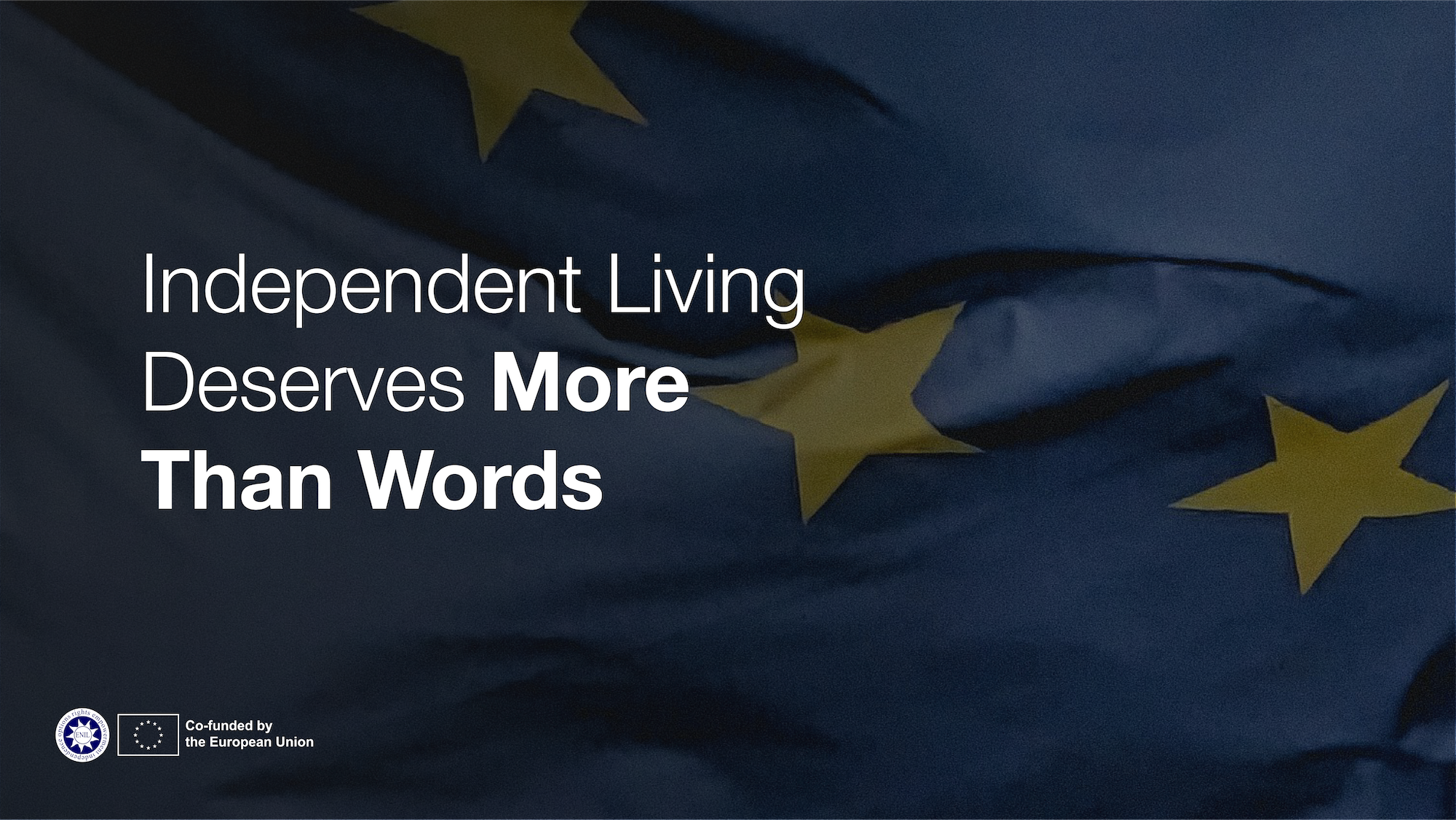On 15th June, the European Network on Independent Living – ENIL presented the Guidelines on Deinstitutionalisation, including in Emergencies at an open meeting of the Monitoring Committee of the State of Tyrol in Austria, organised by its Equality and Anti-discrimination Service Unit (Servicestelle Gleichbehalndlung & Antidiskriminierung). The Monitoring Committee has 16 members and oversees the implementation of the UN Convention on the Rights of Persons with Disabilities. The Guidelines on Deinstitutionalisation were adopted by the Committee on the Rights of Persons with Disabilities in September 2022.
The topic of the open meeting of the Monitoring Committee, held in Innsbruck, was deinstitutionalisation. It brought together the Committee members, the authorities, disabled people, service providers and members of the academia. ENIL became familiar with the situation in Tyrol through cooperation with our member – Independent Living Austria. Together, we submitted several official complaints to the European Commission about the use of the European Agricultural Fund for Rural Development (EAFRD) for the building and renovation of institutions in Austria.
The aim of the meeting was to raise awareness about what a CRPD compliant deinstitutionalisation process looks like – what should be its objective, who should run it, what types of services are needed for everyone to be able to live in the community, what legal reforms should take place etc. The presentation, delivered by the Director of ENIL, Ines Bulić Cojocariu, was translated into plain language, and the entire meeting was made fully accessible. After the presentation, participants discussed different aspects of deinstitutionalisation in smaller groups, including many disabled people and survivors of institutions. There was a positive response to the Guidelines, with a sense of frustration that the State of Tyrol does not even have a deinstitutionalisation strategy.
Before the meeting, we visited some of the institutions funded by EAFRD in the Tyrolean countryside. They included residential facilities for adults and children, and a sheltered workshop. Most investments in Tyrol concern renovation, enlargement, adding car parks, installing new windows, doors and heating systems, elevators, adaptation of bathrooms, and can be as high as 1 million EUR of EU funds. At the same time, support services in the community, such as personal assistance, inclusive education or employment, are not available to many disabled people. Therefore, they are directed towards residential care as their only option.
For disabled people who are eligible for personal assistance, the Centre for Independent Living Innsbruck is there to provide support with managing the scheme. Prof. Volker Schonwiese, one of the pioneers of Independent Living in Tyrol and Austria, took us around to meet some of staff. The Centre employs mainly disabled people as personal assistance leaders. Another example of good practice – WIBS – offers a peer counselling service for people with intellectual disabilities and is hosted by CIL Innsbruck. Importantly, it is run by people with intellectual disabilities themselves. They are employed by WIBS on regular employment contracts and visit, among other, disabled people living in institutions, whom they inform about their rights and provide any other information they need. One of the staff members, Monika Rauchberger, documented her journey from an institution to independent living.
The visit to Tyrol provided ENIL with the opportunity to see first-hand the challenges, exclusion and segregation experienced by disabled people, but also to witness the positive efforts by disabled people and their organisations to improve opportunities for independent living. Together with Independent Living Austria, we will continue monitoring how EU funds are used and taking action to support any efforts to promote independent living and deinstitutionalisation. We take this opportunity to thank the Equality and Anti-discrimination Service Unit of the State of Tyrol for the invitation.
You can find the presentation of the Guidelines online, in English (with consecutive translation into German). See here.
You can find the German version of the Guidelines here. If you would like to organise an official meeting or event to learn more about the Guidelines on deinstitutionalisation, including in Emergencies, please contact ines.bulic@enil.eu.



